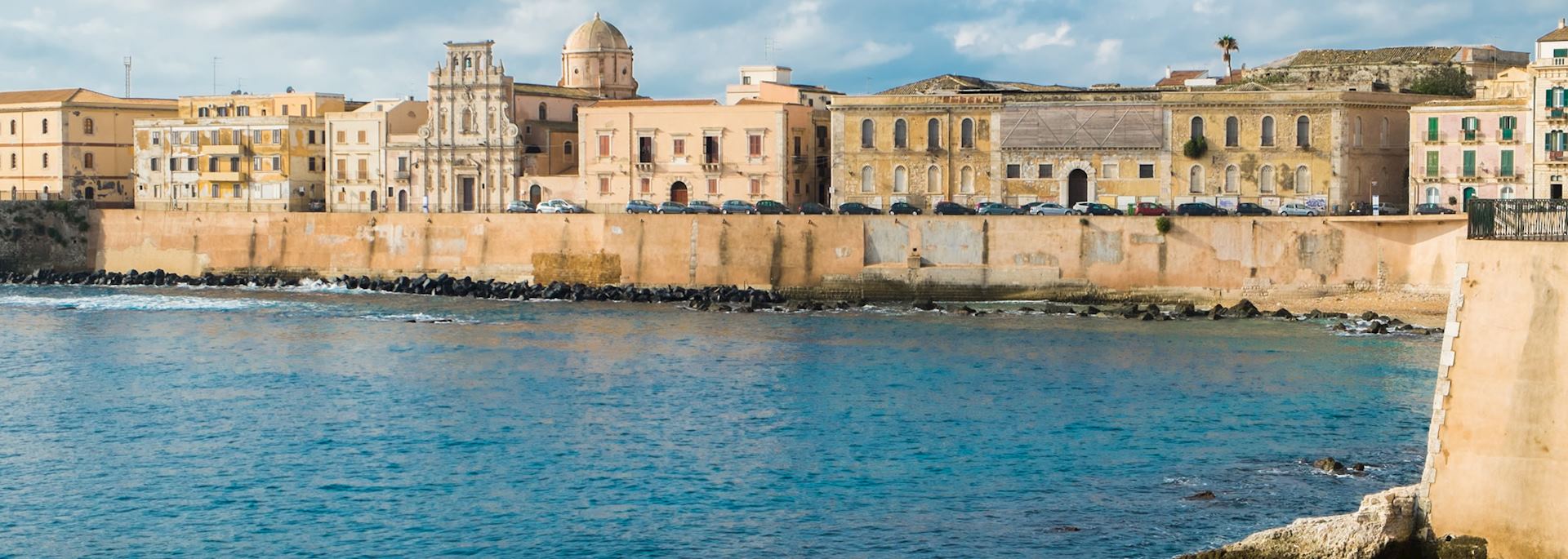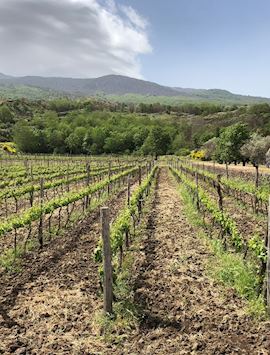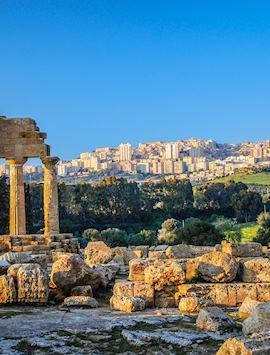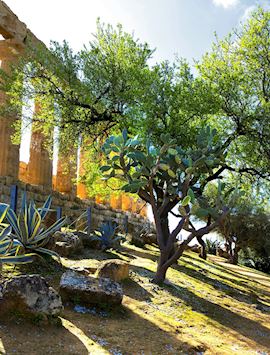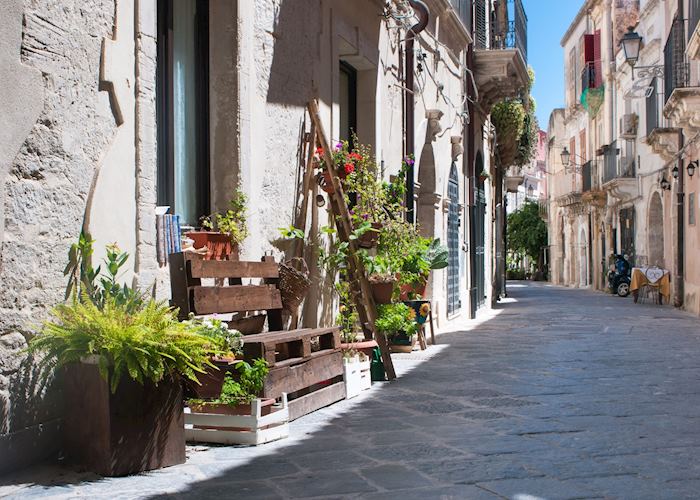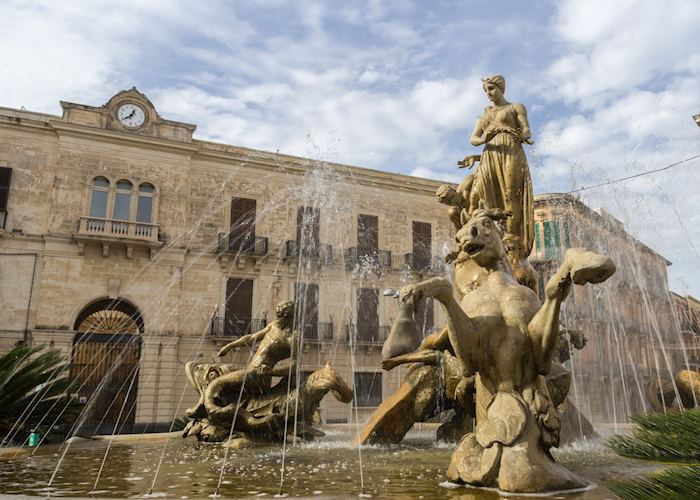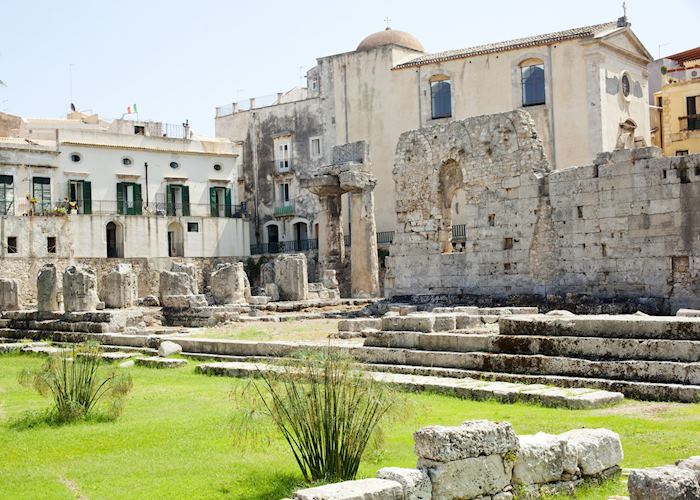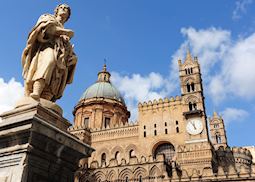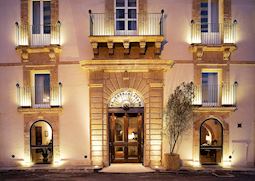Jump to:
Sicily's most elegant city, Syracuse once rivaled Athens in importance and dominated trade across the Mediterranean in ancient times. It was a highly sophisticated and prosperous place that attracted leading statesmen, traders, artists and architects and their legacy is clear as you walk the streets today.
Along with ancient temples and arenas, hidden catacombs and celebrated museums, you'll discover a host of Baroque mansions built after a deadly earthquake in 1693 destroyed parts of the city. This historical beauty is matched by expansive sea views and an array of fine restaurants, making this compact city a rewarding destination.
Syracuse’s grandiose Baroque city planning immediately impresses, but it has a more unassuming side, too. I like to lose myself in the Ortygia (old town) or find a backstreet piazza for a glass of wine on a balmy evening.Italy specialist Kim
Things to see and do in Syracuse
Ortigia
The oldest and most picturesque part of Syracuse is the island of Ortigia, which is connected to the mainland by two bridges. Here, the streets are lined with a harmonious blend of architecture that spans centuries with ancient Greek temples, Norman battlements, Aragonese palaces and Baroque churches hidden down winding narrow lanes.
The island's heart is Piazza del Duomo, one of Sicily's grandest squares, from where streets lined with medieval palazzi (palaces) fan out to art galleries, museums and libraries. On a summer evening, you can stroll by the freshwater Fountain of Arethusa, once the city's main water supply, to the 13th-century Maniace Castle on the island's tip.
Duomo
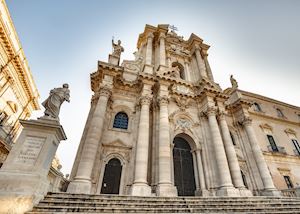 Set at the heart of the old city on refined Piazza del Duomo, Syracuse's cathedral lays bare the city's long and complex history. Although the façade dates from the high Baroque of the 17th century, the cathedral is built around a 5th-century temple to Athena.
Set at the heart of the old city on refined Piazza del Duomo, Syracuse's cathedral lays bare the city's long and complex history. Although the façade dates from the high Baroque of the 17th century, the cathedral is built around a 5th-century temple to Athena.
The massive Doric columns of the original temple have been artfully incorporated into the building and inside, there is evidence of even earlier structures possibly dating back to 1100 BC. Norman mosaics line the apses and a Greek krater, a large vessel used to dilute wine, is now used as the baptismal font.
Archeological park
Syracuse was once one of the most important cities in the Greek Empire and many ruins can be found in the archaeological park northwest of the present town. Most impressive is the 5th-century Teatro Greco, an ancient theater that sat 16,000 people and was the debut venue for many famous Greek tragedies. It’s still used today for performances during the annual Greek drama festival in May and June.
Nearby, vast quarries once worked by prisoners can also be explored. You can still see the ancient grooves from where the rock was removed during the excavations. The 65 m (213 ft) cave known as the 'Ear of Dionysius' has perfect acoustics and was said to have been used by the tyrant Dionysius the Elder (ruler of Syracuse from 434-367 BC) to eavesdrop on prisoners. You'll also find a range of other ruins, including a 2nd-century Roman arena.
who's been there
-
617-223-4521617-223-4778
- Make an inquiry
Suggested itineraries featuring Syracuse
Our itineraries will give you suggestions for what is possible when you travel in Syracuse, and they showcase routes we know work particularly well. Treat them as inspiration, because your trip will be created uniquely by one of our specialists.
Places near Syracuse
- Ragusa, Modica & Noto 33 miles away
- Mount Etna 50 miles away
- Taormina 54 miles away
- Villa Romana del Casale 57 miles away
- Sicily 72 miles away
- Agrigento 96 miles away
- Palermo 128 miles away
- Erice and Trapani 163 miles away
- Marsala 165 miles away
- Capri 247 miles away
- The Amalfi Coast 249 miles away
- Sorrento 251 miles away
- Pompeii 258 miles away
- Matera 259 miles away
- Herculaneum 263 miles away
- Ischia 264 miles away
- Naples 266 miles away
- Otranto 274 miles away
- Puglia 275 miles away
- Lecce 276 miles away
- Alberobello 278 miles away
- Ostuni 282 miles away
- Fasano 283 miles away
Photos of Syracuse
Our expert guides to exploring Syracuse
Written by our specialists from their own experiences of visiting Syracuse, these guides will help you make the most of your time there. We share both our practical recommendations and the best ways to appreciate Syracuse at its best.
-
Where to go in Sicily: our highlights guide ![Ancient statue, Palermo]()
Where to go in Sicily: our highlights guide
Where to go in Sicily: our highlights guide
Beyond its azure waters and white pebbled beaches, Sicily offers a complex cultural experience, one that is seen in its Baroque churches, open-air markets, Greek ruins and complex cuisine. Discover why it’s the crossroads of the Mediterranean with Audley specialist Kimberly.
Read this guide
Accommodation choices for Syracuse
We've selected a range of accommodation options for when you visit Syracuse. Our choices usually come recommended for their character, facilities and service or location. Our specialists always aim to suggest properties that match your preferences.
-
![Exteria, VRetreats Palazzo Artemide]()
VRetreats Palazzo Artemide
Syracuse -
![Algila Ortigia Charme Hotel, Syracuse]()
Algila Ortigia Charme Hotel
Syracuse
